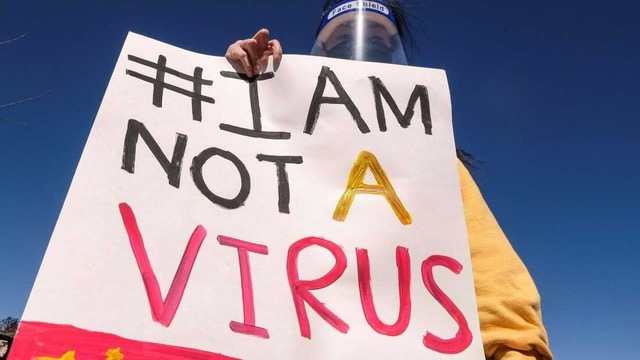[This article is meant to highlight the rise and continued invisibility of anti-Asian hate crimes occurring throughout the country with no intention to invalidate or minimize racism and violence towards other races and ethnic groups. If change is to occur, we must all work together in solidarity to demand equity for all minority groups.]
The history of racism toward AANHPI groups is long; it is riddled with exclusion, violence, and discrimination. From exclusionary immigration policies, mass lynchings, Japanese internment camps, the Vietnam War, and the murder of Vincent Chin to present-day anti-Chinese rhetoric perpetuated by the former presidential administration and U.S. politicians, anti-Asian sentiments remain an ongoing issue.
To give some perspective on the reality of just how severe this issue has become, specifically since the start of the Covid-19 pandemic, the FBI reported a 77% increase in anti-Asian hate crimes between 2019 and 2020. This trend continued between 2020 and 2021 as data from the Center for the Study of Hate and Extremism (CSUSB) revealed more than a 300 percent increase in reports of anti-Asian hate crimes. Additionally, advocacy group Stop AAPI Hate recorded a total of almost 11,000 self-reported incidents from March 2020 to December 2021.
Even with these alarming numbers, it appears as though anti-Asian hate crimes continue to remain invisible with a lack of media coverage and conversations on the issue. Very little AANHPI history is included in most school curriculums. In fact, even as a Vietnamese American, I did not know about many of these events until I began my research for this article. If I, as a person who is a part of the AANHPI community, was not aware of the extent of this history then are my peers of different races and ethnicities at all aware? The conclusion I have come to is “mmm not really.” I have sat down with a few of my close friends who identify as White and none of them knew about any of the history that is not formally taught in school, or the extent of anti-Asian hate crimes occurring today. This is not to say that all people of different races and ethnicities are ignorant to these realities as I do not wish to make that generalization, only to further highlight this seemingly invisible reality that so many face. Again, even I was largely unaware. However, in order to see an end to these horrifying statistics, knowledge and awareness are a necessity.
not know about many of these events until I began my research for this article. If I, as a person who is a part of the AANHPI community, was not aware of the extent of this history then are my peers of different races and ethnicities at all aware? The conclusion I have come to is “mmm not really.” I have sat down with a few of my close friends who identify as White and none of them knew about any of the history that is not formally taught in school, or the extent of anti-Asian hate crimes occurring today. This is not to say that all people of different races and ethnicities are ignorant to these realities as I do not wish to make that generalization, only to further highlight this seemingly invisible reality that so many face. Again, even I was largely unaware. However, in order to see an end to these horrifying statistics, knowledge and awareness are a necessity.
There are so many important facets of this issue that deserve attention and I wish I could cover all of them in a short article but that would be nearly impossible. My only hope for this article is to bring attention to the lack of knowledge about the past and present realities of anti-Asian hate and call on those with knowledge, experience, and platforms to begin and/or continue to share with those of us who are now starting our work towards change. Change in the way AANHPI groups are seen in American culture. Change in how they are treated. Change in the opportunities available to them. Change in the system. However, change cannot grow from ignorance and will never be achieved without action. As a young person, I know there is a long road ahead in the pursuit of change, but I would be remiss if I did not use my voice as part of this effort and encourage those around me to do the same. If change is to occur for one of us, it must occur for all of us. We must all work together in solidarity to demand equity for all minority groups. We do not have to work alone, rather, we have the ability to work alongside one another in our efforts to secure the future we want for generations to come. I will leave you with this question, what are you doing to achieve the change you seek?